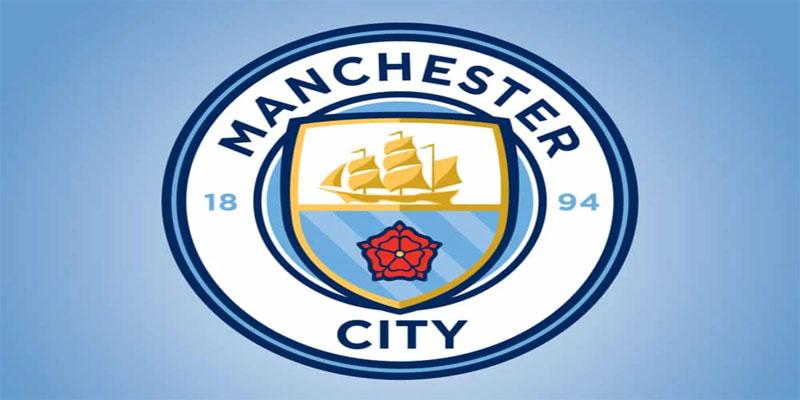The journey of the Manchester City Football Club is one filled with passionate highs and agonizing lows, but through it all, the club has forged a legacy that stands tall in the annals of football history. With their iconic blue uniforms and their tenacity on the pitch, Manchester City Football Club has captivated fans across 33WIN the globe, evolving into one of the most dominant forces in modern football.
Introduction to Manchester City Football Club
The story of Manchester City Football Club begins in the late 19th century, when a group of local football enthusiasts decided to form a team. Known initially as St. Mark’s (West Gorton), the club was founded in 1880. Over the decades, the club underwent numerous transformations, both in terms of identity and performance, ultimately leading to its current status as a premier football institution.
As we delve deeper into the history and development of the club, we will uncover the trials and tribulations that shaped Manchester City Football Club into what it is today, exploring pivotal moments and key achievements that have defined its legacy.
History and development of the club
The roots of Manchester City Football Club can be traced back to the city of Manchester, which has long been recognized as a vibrant hub for industrial innovation and cultural evolution. The founding of the club as St. Mark’s (West Gorton) was just the inception of a journey that would traverse over a century.
In 1894, the club transitioned to becoming Manchester City, marking the beginning of an era characterized by ambition and growth. Early successes included winning the Second Division title in 1899, paving the way for the club to establish itself in the top tier of English football.
As the years rolled on, Manchester City Football Club navigated through various transformations, including changes in management and alterations in team dynamics. The arrival of notable players often ushered in periods of success, with the club lifting its first significant trophy, the FA Cup, in 1904. This victory was a defining moment that instilled a sense of pride and camaraderie among supporters and players alike.
However, the club faced its share of challenges, particularly during the mid-20th century when financial strife led to relegation and uncertainty. The fluctuating fortunes of Manchester City Football Club serve as a testament to the volatility of competitive sports, where triumphs are often shadowed by setbacks.
Key achievements in the club’s history
Throughout its storied history, Manchester City Football Club has achieved remarkable milestones that resonate deeply with fans and analysts alike. The club’s illustrious past boasts multiple trophy victories, including domestic league titles, FA Cups, and League Cups.
One of the most memorable eras came during the 1960s and 1970s, when the club experienced a renaissance under the management of Joe Mercer. The pinnacle of this period was the remarkable achievement of winning the European Cup Winners’ Cup in 1969-70 — a feat that solidified the club’s reputation on the continental stage.
The late 2000s marked yet another transformative phase, propelled by a substantial financial investment from the Abu Dhabi United Group. This influx of funds revolutionized Manchester City Football Club, allowing the acquisition of world-class talent such as Sergio Agüero, David Silva, and Yaya Touré. Their contributions were paramount, enabling the club to clinch its first Premier League title in 2012—a moment etched in the memories of fans who witnessed Agüero’s dramatic last-minute goal against Queens Park Rangers.
In recent years, the club’s prominence has only increased, with manager Pep Guardiola steering the team to unprecedented heights. Under his guidance, Manchester City Football Club has displayed a style of play characterized by fluidity and flair, resulting in multiple Premier League titles and a historic treble in the 2022-2023 season.
Progress and improvements in recent years
Recent years have witnessed a tremendous transformation at Manchester City Football Club, not only in terms of on-field performances but also in infrastructural advancements and community outreach. The establishment of the City Football Academy signifies the club’s commitment to nurturing young talent and promoting football at grassroots level.
Investment in technology and analytics has become a hallmark of the club’s operations, fostering a culture of innovation that enhances player performance and team strategy. The integration of data-driven insights into training regimens has allowed Manchester City Football Club to stay ahead of its competitors, securing victory through meticulous preparation.
Furthermore, the club’s efforts to engage with its fan base have been commendable. Initiatives aimed at improving the matchday experience and strengthening community ties reflect a commitment to inclusivity and shared values. As the club ventures forward, Manchester City Football Club continues to evolve while honoring its rich heritage.
Conclusion
As we reflect on the legacy of Manchester City Football Club, it becomes evident that its journey is characterized by resilience, ambition, and an unwavering commitment to excellence. From humble beginnings to establishing itself as a dominant force in the footballing world, the club has cultivated a rich history that continues to unfold.


